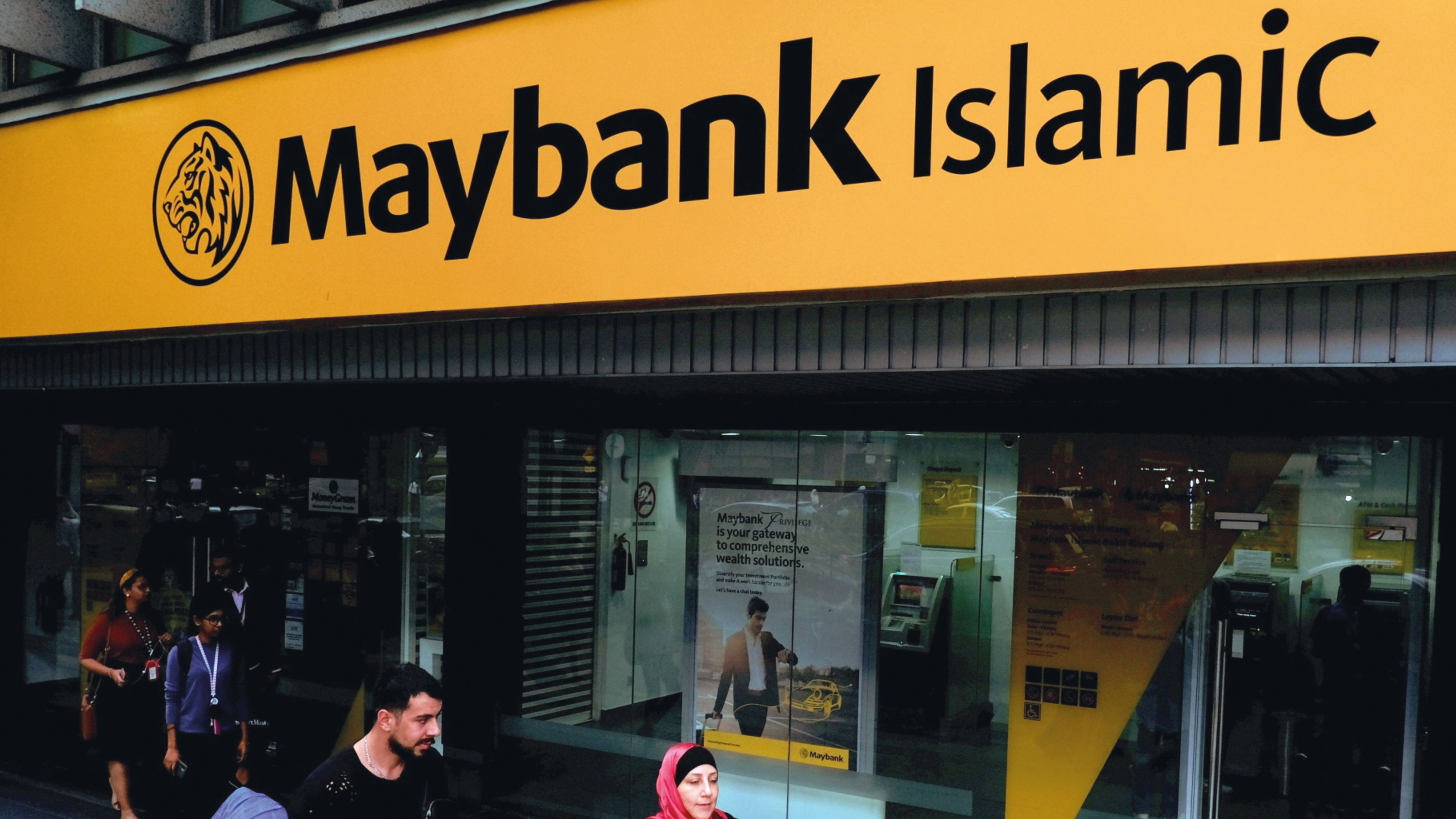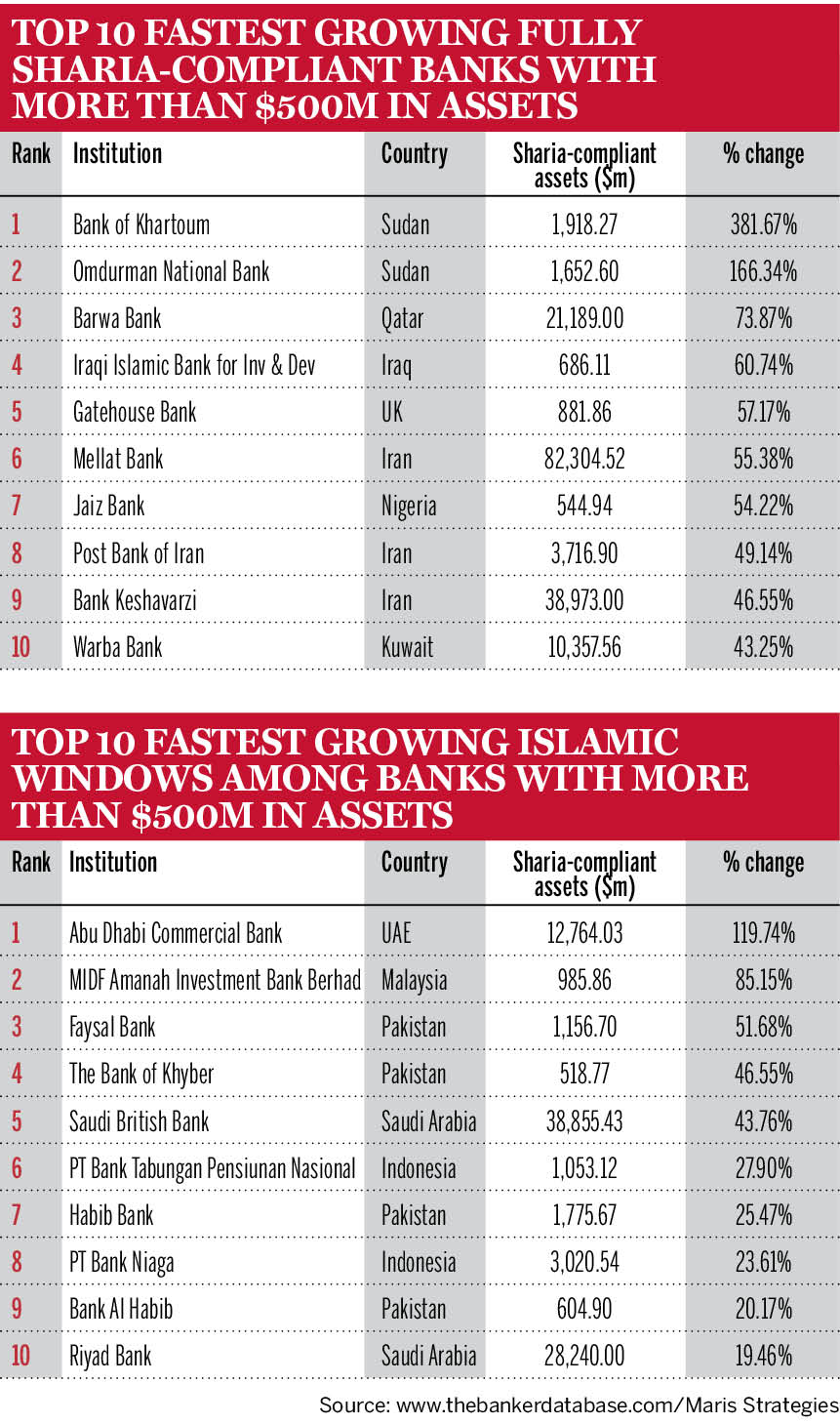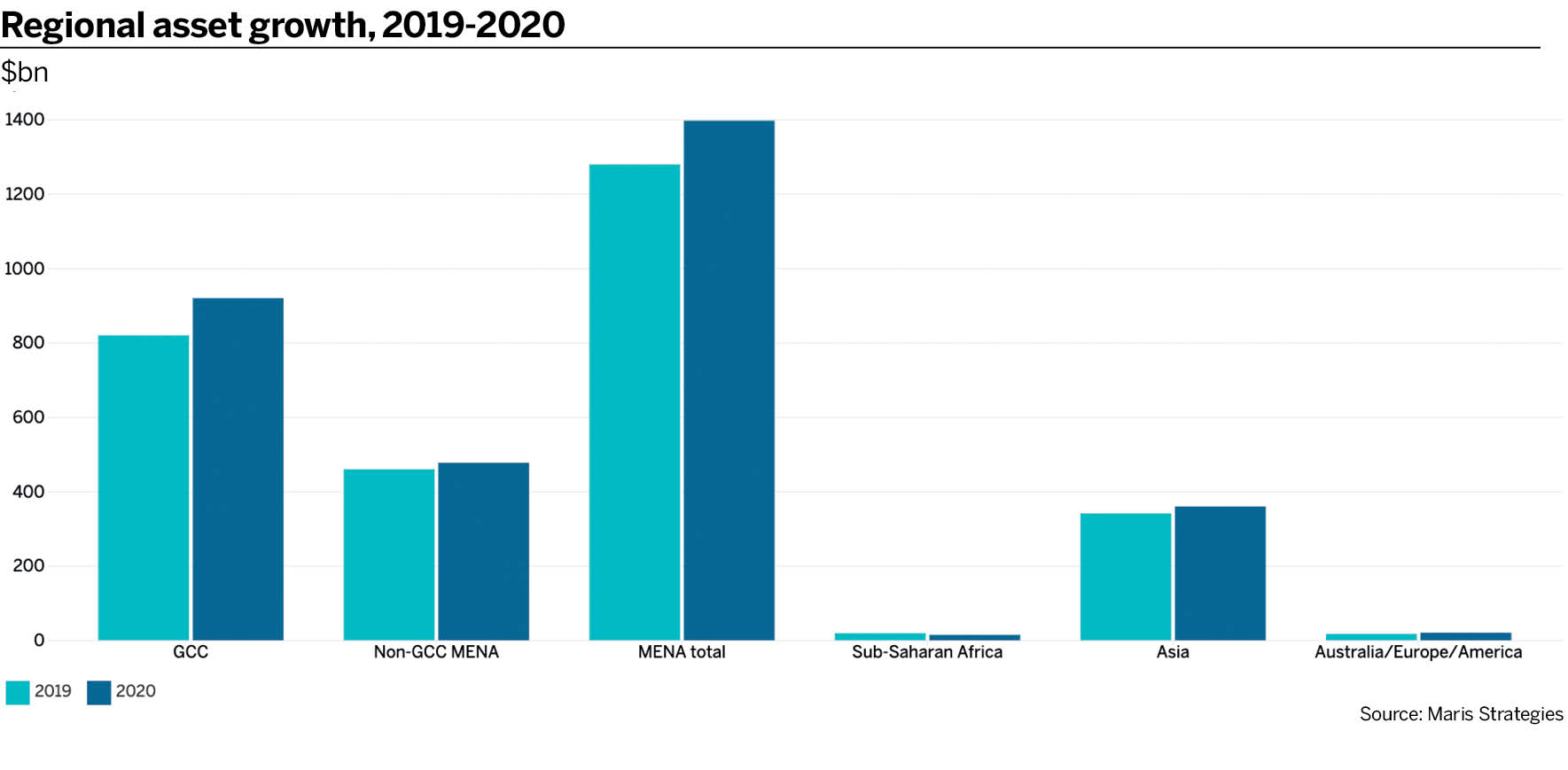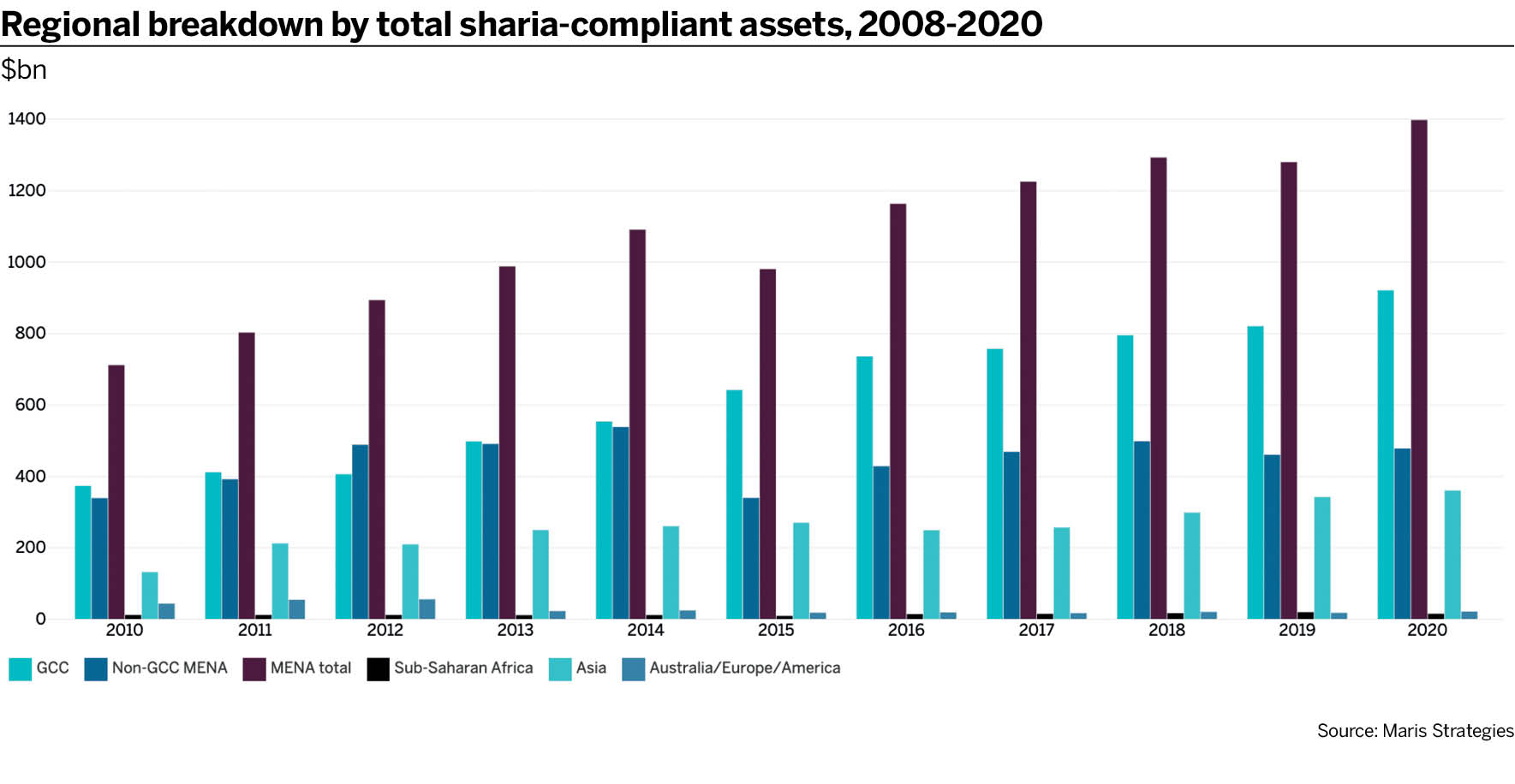
The Banker’s 2020 Top Islamic Financial Institutions ranking illustrates the continuing growth trajectory and influence of the industry globally.
Islamic finance continues to grow in size and influence, spreading far beyond the Middle East into Muslim-majority countries in Asia and Africa, as well as parts of Europe and beyond. Greater awareness of Islamic finance, coupled with improved legal and regulatory structures in many countries, is helping the sector expand across larger geographies, a trend that is unlikely to slow in the medium term even with the greater uncertainty brought about by the global pandemic.
The Banker’s 2020 Top Islamic Financial Institutions ranking highlights the continued growth of the industry, which has doubled in size over the past decade and has experienced a compound annual growth rate (CAGR) of around 10.8% since 2006. Globally, there are now 47 financial institutions with more than $10bn in sharia-compliant assets, up one from the year before, with 27 institutions recording a pre-tax profit of more than $500m in 2019.
In the latest ranking, the overall number of financial institutions reporting sharia assets rose from 395 to 402, with the majority of those (284) being standalone Islamic financial institutions. At the same time, the number of conventional lenders with sharia-compliant banking windows on the list fell to 118, down two from the year before. However, this is unlikely to be part of a larger global trend.
Rising assets
Sharia-compliant assets worldwide have grown noticeably compared with the 2019 ranking, rising 8.2% to $1.79tn in 2020.
Some regions fared better than others. The Middle East and north Africa (MENA), which saw assets increase by 9.2% to $1.4tn, is experiencing a growing divergence between the six countries of the Gulf Co-operation Council (GCC) and the rest of the region. GCC assets have grown by 12.2% while the rest of the region saw total assets rise by only 3.8%.
At the same time, sub-Saharan Africa, which had been the success story of the 2019 ranking, with assets up 18.2%, saw a dramatic fall in 2020, with overall sharia-compliant assets dropping 23.5% year-on-year. The region continues to make up the smallest fraction of total global sharia-compliant assets, worth $14.4bn as of the end of 2019, having briefly overtaken Australia/Europe/America in the 2019 ranking.
The latter regional grouping, meanwhile, saw a significant uptick in the 2019 review period, with sharia-compliant assets rising more 20% year-on-year, after falling 12.8% the previous year. Asia experienced a more modest growth rate of 5.4%; but with a CAGR of 7.7% over the past five years, it was the fastest-growing region over that longer period.
Leading the pack
The importance of the wider MENA region continues to be clear, accounting for 77.4% of total sharia-compliant assets in the latest ranking, down slightly from 2019 figures, when the region represented 79.5% of assets.
Iran and Saudi Arabia remain by far the largest markets when it comes to sharia-compliant assets, with both markets having more than $400bn in assets. Six of the 10 largest Islamic lenders come from those two countries, with only one, Malaysia’s Malayan Banking Berhad (Maybank), coming from outside the Middle East.
Among individual financial institutions, Kuwait Finance House, the largest Islamic bank in Kuwait, regained its third-place spot on the overall ranking, in terms of assets. However, the bank’s acquisition of Bahrain’s Al Ahli United, ranked 32nd on the list, was postponed in April due to the coronavirus pandemic. The deal, which was agreed in January 2019 and cleared by the Bahraini central bank in April, would create a financial institution with more than $90bn in sharia-compliant assets, second only to Saudi Arabia’s Al Rajhi Bank, which had assets of $102.4bn at the end of 2019.
Despite uncertainties brought about by economic sanctions on the country, Iran’s Islamic banking sector has continued to thrive. Four of the country’s five largest lenders saw sharia-compliant assets grow by more than 40% year-on-year in 2019 (with the fifth, Bank Saderat Iran, missing key data to know if it would have also been in this category). Iran’s Mellat Bank, the second largest lender on the global ranking, had a particularly impressive year, with sharia-compliant assets up 55.4% to hit $82.3bn, and a return on assets (ROA) of 4.6%.
Uneven rise of smaller markets
Sub-Saharan Africa is another region that continues to be seen as a strong growth market, despite a drop in overall sharia-compliant assets in the 2020 ranking of almost a quarter.
Among the top 10 fastest-growing fully sharia-compliant institutions with more than $500m in assets, the top two places were held by Sudanese lenders: Bank of Khartoum and Omdurman National Bank. Iran accounted for a further four on the fastest growing list, with Qatar’s Barwa Bank, Iraqi Islamic Bank for Investment & Development, the UK’s Gatehouse Bank and Warba Bank from Kuwait rounding out the list.
During the 2019 review period, Bank of Khartoum saw its sharia-compliant assets grow by an impressive 381.7%, double that of Omdurman National Bank, which saw a growth of 166.3%. Qatar’s Barwa Bank came third overall, with a rise of 73.9%.
Across Africa as a whole, Nigeria’s Jaiz Bank also had a particularly strong year, with assets rising 54.2% to $545m, while Algeria’s Al Salam Bank saw its asset base grow by 28.4% and Faisal Islamic Bank of Egypt by 22.5%. All operate in markets with strong growth potential when it comes to Islamic banking products.
The Australia/Europe/America region has also had a decidedly turbulent few years. Assets rose 20.3% in this year’s ranking, after falling 12.8% in 2019 and rising 20.2% in 2018. Overall, however, the regional grouping is on an upward trajectory, having experienced CAGR of 2.32% over the past five years.
The region is also considered to have plenty of growth potential in the near future. In January, Moody’s Investors Service predicted that Turkey’s Islamic banking assets would double over the next 10 years, as a result of government initiatives and new regulations that will push the sector’s expansion. This includes the state-funded Istanbul International Financial Centre, which is set to open in 2023.
Populous Asia
Asia continues to be a particular focus for those looking to further expand Islamic banking’s global reach, which is not surprising given the sheer size of the population in countries like Bangladesh, Indonesia and Pakistan, and the fact that they are all majority-Muslim countries. Growth is also expected to come from the Commonwealth of Independent States region, which includes Azerbaijan and Kazakhstan.
When it comes to Islamic windows with more than $500m in assets, the top 10 fastest-growing list was headed by Abu Dhabi Commercial Bank (ADCB Meethaq), which saw its assets rise 119.7% to $12.8bn. However, the rest of the list was dominated by Asian lenders, featuring four banks from Pakistan, two from Indonesia and one from Malaysia (with Saudi British Bank and Riyad Bank completing the top 10). Malaysia’s MIDF Amanah Investment Bank Berhad, in second place, saw its sharia-compliant assets grow by 85.2% year-on-year, followed by Pakistani lenders Faysal Bank and the Bank of Khyber, which grew by 51.7% and 46.6%, respectively.
In Malaysia, six of the 10 largest Islamic banks posted double-digit growth in sharia-compliant assets in 2019, as did a third of all Malaysian banks listed on the ranking. More than half of the 21 Pakistani banks on the list experienced double-digit growth in sharia-compliant assets between 2018 and 2019.
At the same time, Indonesia, population around 270 million, led overall when it came to the number of institutions offering Islamic finance, with 62 entrants in the ranking. The country ranked ninth overall in terms of total sharia assets, one place behind Bangladesh in a top 10 dominated by Middle Eastern institutions.
Profits up
Financial institutions offering sharia-compliant services continued to post strong profits in 2019, with standalone Islamic financial institutions recording a combined profit of $16.2bn in 2019. The number of financial institutions on the list posting a pre-tax profit of more than $500m remained stable at 27, but an additional four banks recorded profits of between $100m and $500m compared with 2019 (53 versus 49).
The standout winner among fully sharia-compliant commercial banks (with a minimum $100m in profits) was Sudan’s Blue Nile Mashreq Bank, which saw pre-tax profits of $516.8m, and ROA of 14.8%. This was followed by the UAE’s Al Hilal Bank (the Crescent Bank), which had ROA of 10.5%. No other commercial bank of this size recorded a ROA of more than 5%, with third place Mellat Bank from Iran posting ROA of 4.6%.
Impressively, Faisal Islamic Bank occupied two spots on the top 10 commercial bank list when it came to ROA; fourth spot for its Egyptian operations and seventh for its Sudanese bank, with ROAs of 3.8% and 2.6%, respectively.
Overall, the average ROA for standalone institutions featured in the global ranking was 1.2%.
Major acquisitions
Over the past year there have been some notable mergers and acquisitions (M&As) in the Islamic finance space, with the Middle East in particular seeing the creation of larger, combined Islamic financial institutions. More deals are on the horizon.
The acquisition of the UAE’s Noor Bank (ranked 39th overall in terms of sharia-compliant assets) by Dubai Islamic Bank, ranked fifth, which was completed in January, has created a bank that would have placed third on the latest list, behind only Saudi Arabia’s Al Rajhi Bank and Iran’s Mellat Bank.
National Bank of Bahrain acquired a 78.8% stake in Bahrain Islamic Bank in January 2020, as it looked to further develop its Islamic banking activities, with the Islamic lender set to operate as a standalone subsidiary. Bahrain Islamic Bank was Bahrain’s seventh largest lender in terms of sharia assets in 2019, though the bank saw its assets drop 4.4% year-on-year to $3.25bn.
At the same time, discussions over a potential merger between Saudi banks National Commercial Bank (fourth highest on the 2020 ranking in terms of sharia-compliant assets) and Riyad Bank (19th) were abandoned last year. In June it was announced that talks were now underway over the potential acquisition of Samba Financial Group (26th overall) by National Commercial Bank, which would create a new bank controlling an estimated quarter of all banking in Saudi Arabia. In October the banks said that the deal was going ahead, in a transaction valued at $14.8bn.
Given the global climate, The Banker expects to see further discussions of potential M&As over the next year.
Bright future
With a global Muslim population of close to two billion, the overall reach for Islamic finance is huge, and the market is maturing fast. The Banker’s 2020 Top Islamic Financial Institutions ranking gives a snapshot of this growth, and the overall strengths of the Islamic finance industry today, with assets expanding in all regions, except sub-Saharan Africa, and major lenders continuing to grow their operations.
At the same time, the geographical spread of Islamic finance institutions has remained largely static, with a drop in the number of countries featured on the 2020 list, down from 45 to 44. Continuing a trend from last year’s ranking, it suggests a period of consolidation rather than rapid expansion for sharia-compliant banking operations.
Looking forward, demand for Islamic banking services, both in more mature markets like the Middle East but also in regions like Africa where there are still large unbanked populations, shows little sign of waning.






